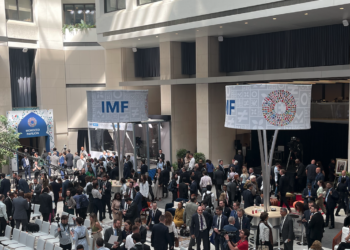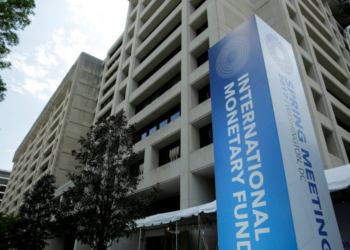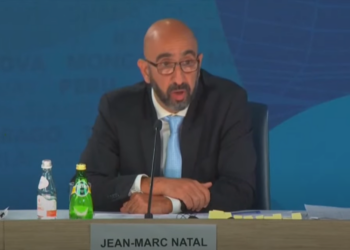Article summary
- The IMF says countries in sub-Saharan Africa are at risk of losing out on key markets if geopolitical tensions continue.
- The Fund says the region could lose up to $10 billion in FDIs.
- Countries in sub-Saharan Africa need to strengthen cooperation under the AfCFTA as a buffer to geopolitical trade risks.
The International Monetary Fund (IMF) has said that countries in sub-Saharan Africa are at risk of losing $10 billion in foreign direct investments (FDI) and could lose access to markets if geopolitical tensions continue.
The IMF stated this in an essay published on Monday, May 1. According to the essay, escalation of current geopolitical tensions would see countries in sub-Saharan Africa, hit by higher import prices or even lose access to key export markets, meaning that half of the region’s value of international trade could be impacted.
Painting a bleak picture
The IMF estimates that if the world were split into two isolated trading blocs centered around China or the United States and the European Union, sub-Saharan African economies could experience a permanent decline of up to 4% of the real gross domestic product after 10 years.
According to the IMF, economic and trade alliances with new economic partners, predominantly China, have benefited sub-Saharan African countries but have also made their reliance on food and energy imports more susceptible to global shocks, including disruptions from the surge in trade restrictions following Russia’s invasion of Ukraine. The IMF said:
- “The losses could be compounded if capital flows between trade blocs were cut off due to geopolitical tensions. The region could lose an estimated $10 billion of foreign direct investment (FDI) and official development assistance inflows, which is about half a percent of GDP a year (based on an average 2017–19 estimate). The reduction in FDI, in the long run, could also hinder much-needed technology transfer.”
Strategic decoupling
The IMF stated that countries in sub-Saharan Africa would fare better if only the US/EU cut ties with Russia and the former continue to trade freely. If this happens, trade flows would be diverted towards the rest of the world, creating opportunities for new partnerships, and possibly boosting intra-regional trade.
Because some African countries benefit from access to new export markets and cheaper imports, the region would not incur a GDP loss. This creates a possibility for oil exporters supplying energy to Europe to gain from the scenario.
What countries in sub-Saharan Africa can do
The IMF advises countries in sub-Saharan Africa to promote integration and cooperation under the African Continental Free Trade Area (AfCFTA). The AfCFTA will reduce tariff and non-tariff trade barriers, strengthen efficiency in customs, leverage digitalization, and close infrastructure gaps.
- The IMF also advises countries in the region to stop relying so much on foreign inflows by deepening domestic financial markets to lower volatility.
- The Fund also urges energy exporters in sub-Saharan Africa to displace Russia’s energy market share in Europe. The Fund stated:
- “Countries can also rely on trade promotion agencies to help identify potential opportunities, build the necessary skills and capacity for exports, and eventually re-orient production to take advantage of new trade flows. Improving the business environment, such as by lowering entry, regulatory, and tax barriers could also help.”













.gif)






